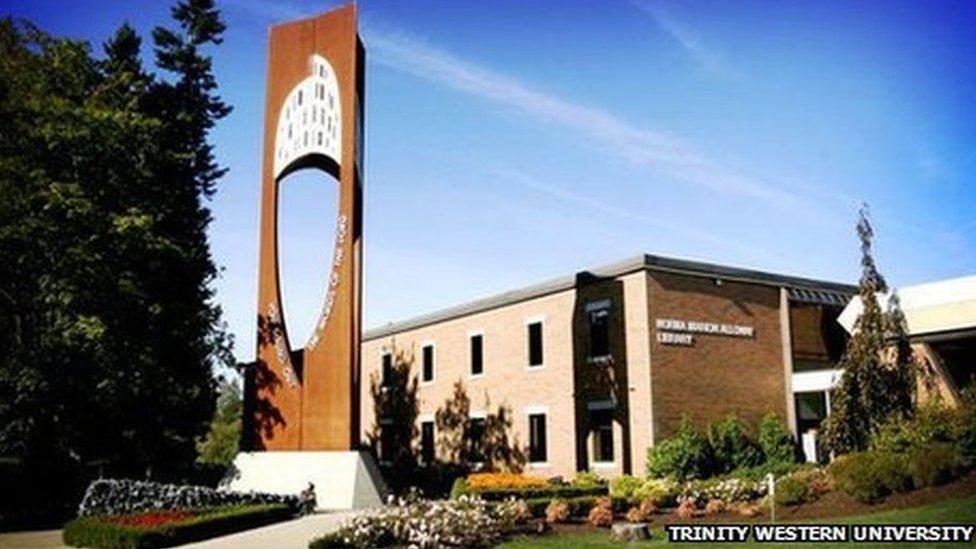Supreme Court to hear LGBT workplace discrimination cases
- Published
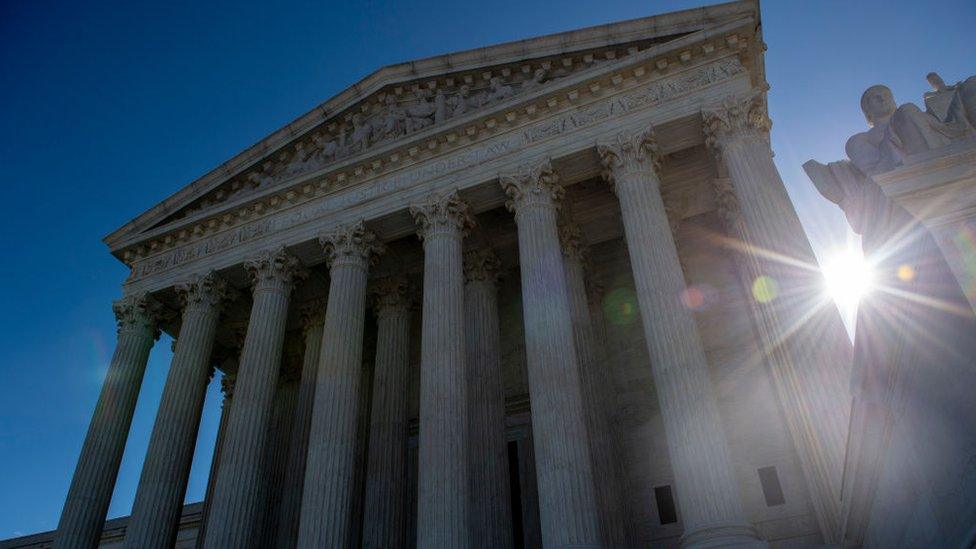
The US Supreme Court will examine federal protections for LGBT employees in the workplace
The US Supreme Court has agreed to hear three cases that ask if existing US job discrimination laws should extend to sexual orientation and gender identity.
Two of the cases involve alleged discrimination of gay men by their employers, and the third examines the discrimination of a transgender person.
The cases will signal the direction of LGBT rights in the US, four years after gay marriage was legalised nationwide.
The 5-4 conservative-majority court is set to examine the cases this fall.
The first two cases have been consolidated as both address the purported discrimination of gay employees.
Donald Zarda, a skydiving instructor from New York, and Gerald Bostock, a former county child welfare services coordinator from Georgia, both alleged they were fired because of their sexual orientation.
The top court will also examine the Michigan case of funeral home employee Aimee Stephens, who claims she was fired because she is transgender.
In its listing of the cases, the Supreme Court cites Title VII of the Civil Rights Act of 1964, the section that prohibits employers from discriminating on the basis of race, colour, religion, sex and national origin.
But it does not explicitly reference sexual orientation or gender identity, and lower courts have been divided in recent years on whether the protections should apply to either category.
The US Justice Department under President Donald Trump has supported the employers in each case, arguing that existing federal civil rights protections do not extend to sexual orientation or gender identity.
This marks a change in course from the Obama administration, which supported treating LGBT discrimination as sex discrimination.
Some advocates for LGBT equality celebrated the opportunity for workplace protections to be cemented in law.
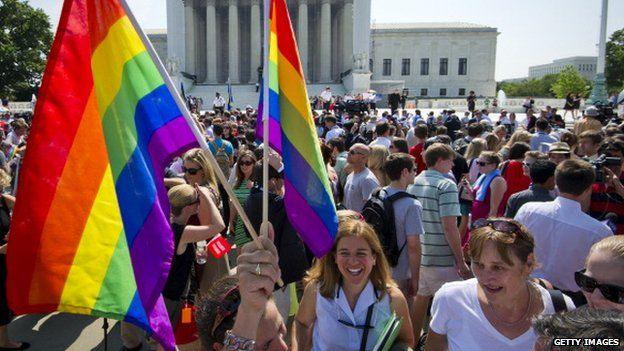
Gay marriage supporters cheered the June 2013 ruling that struck down a law limiting recognition of the unions
"The Supreme Court has an opportunity to clarify this area of law to ensure protections for LGBTQ people in many important areas of life", said Sarah Warbelow, Human Rights Campaign legal director, in a statement.
"The growing legal consensus is that our nation's civil rights laws do protect LGBTQ people against discrimination under sex nondiscrimination laws."
In her statement Ms Warbelow urged Congress to pass protections for LGBT employees, "regardless" of the court's decision.
In 2017, the Supreme Court chose not examine a case involving a lesbian working as a hospital security officer in Georgia, leaving a lower court ruling in place which sided with the woman's employer.
The current bench, a 5-4 conservative majority, includes Trump appointees Justice Neil Gorsuch and Justice Brett Kavanaugh.
- Published21 September 2020
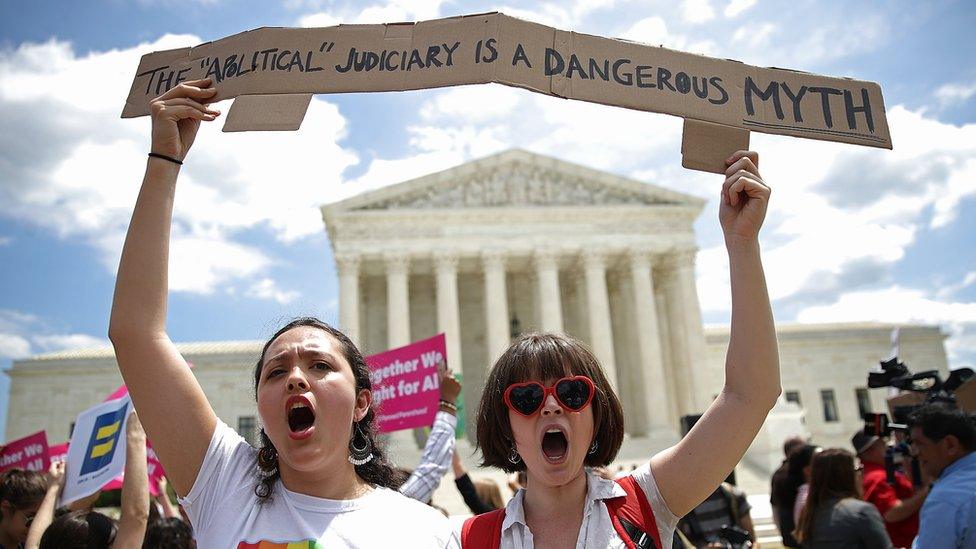
- Published8 February 2024
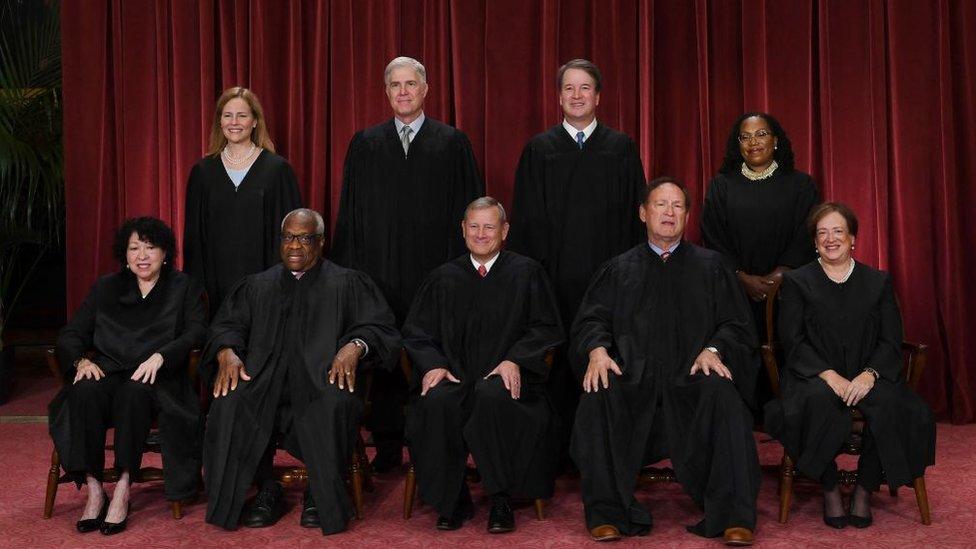
- Published15 June 2018
